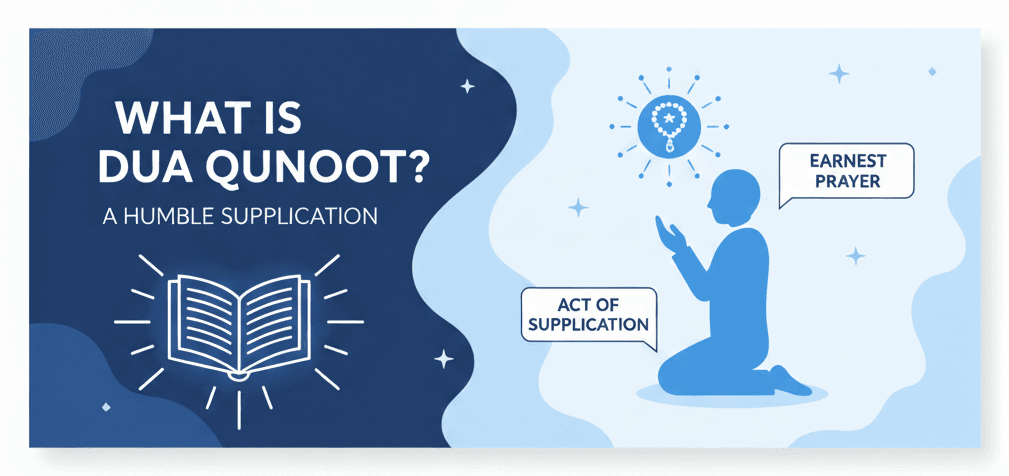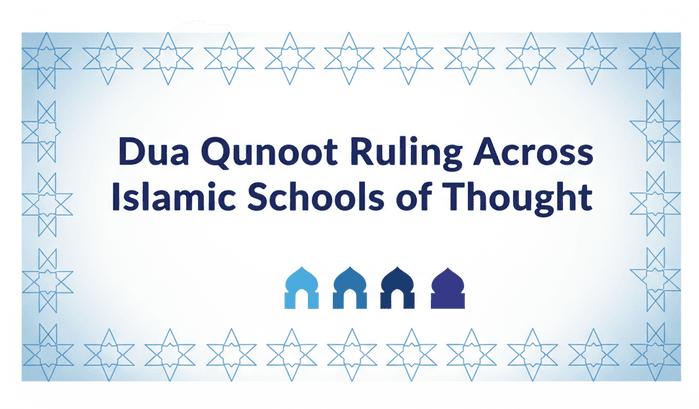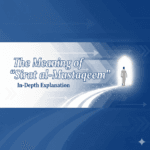Starting With The Name Of Almighty Allah
As Muslims, we often find ourselves pondering the finer details of our worship, seeking clarity to strengthen our connection with Allah. One such question that arises frequently is whether reciting Dua Qunoot in Witr prayer is an absolute requirement or something more flexible. This topic touches on the heart of Islamic jurisprudence, blending tradition, prophetic guidance, and scholarly interpretations. In this exploration, we’ll delve into the Dua Qunoot ruling, examining if it’s wajib or sunnah, and how it fits into the broader practice of Witr prayer. By understanding these nuances, you can approach your nightly prayers with greater confidence and devotion.
Understanding Witr Prayer: A Nightly Act of Devotion
Witr prayer holds a special place in Islamic worship, often performed after Isha as the final voluntary prayer of the night. It’s unique because it consists of an odd number of rakats—typically one, three, or more, emphasizing humility and surrender before sleep. The Prophet Muhammad (peace be upon him) emphasized its value, encouraging believers to make it a regular part of their routine.
This prayer serves as a moment of reflection, allowing us to seek forgiveness and guidance amid the quiet of the evening. Many view it as a shield against worries, drawing from the Sunnah where the Prophet would never miss it, even while travelling. Its flexibility in rakats accommodates different energy levels, yet its core remains a testament to consistent faith.
What is Dua Qunoot? A Humble Supplication
Dua Qunoot refers to a specific supplication recited during certain prayers, embodying themes of guidance, protection, and mercy. In the context of Witr, it’s a heartfelt plea that highlights our dependence on Allah. The word “Qunoot” itself derives from Arabic roots meaning obedience and humility, capturing the essence of standing before the Divine with open hands and a submissive heart.

Reciting this dua involves standing upright after the recitation of Surah Al-Fatihah and another surah in the final rakat, pouring out one’s soul in words taught by the Prophet. It’s not just rote memorization; it’s an opportunity to personalize your connection with Allah. For those eager to master such elements, exploring structured learning like Online Classes of Quran can provide step-by-step guidance.
“Allahumma ihdini fiman hadayt, wa aafini fiman aafayt, wa tawallani fiman tawallayt, wa barik li fima a’atayt, wa qini sharra ma qadayt, innaka taqdi wa la yuqda alayk, innahu la yadhillu man walayt, wa la ya’izzu man aadayt, tabarakta Rabbana wa ta’alayt.”
This standard Dua Qunoot, as narrated in hadith collections, encapsulates seeking Allah’s direction and safeguarding.
Dua Qunoot Ruling Across Islamic Schools of Thought
Islamic jurisprudence offers diverse views on the Qunoot in Witr prayer, reflecting the richness of scholarly traditions. These differences stem from varying interpretations of prophetic practices and hadith, allowing Muslims to follow what resonates with their understanding.

Hanafi Dua Qunoot: Considered Wajib
In the Hanafi school, the Dua Qunoot ruling leans toward it being wajib, or obligatory, in the Witr prayer. Scholars here argue that omitting it intentionally invalidates the prayer, requiring prostration of forgetfulness if skipped accidentally. It’s recited in the third rakat before bowing, emphasizing its integral role.
This perspective draws from reports of the Prophet’s companions maintaining this practice consistently. For parents teaching young ones these fundamentals, options like Online Quran Classes for Kids ensure age-appropriate explanations. To grasp the full sequence, check out How To Pray Witr Salah? When To Perform This Prayer? for practical tips.
Shafi Dua Qunoot: A Recommended Sunnah
The Shafi’i school views Qunoot prayer as sunnah rather than wajib, meaning it’s highly encouraged but not mandatory. Here, it’s performed after rising from ruku in the last rakat of Witr, allowing for flexibility during times of calamity or personal need.
This approach highlights the dua’s role in invoking divine aid, aligning with broader supplications in other prayers like Fajr. Shafi’i followers appreciate this as a way to enhance spiritual depth without rigid obligation.
Views from Maliki and Hanbali Schools
Maliki scholars generally do not consider Qunoot obligatory in Witr, reserving it primarily for Fajr during trials. They see Witr without Qunoot as fully valid, focusing on the prayer’s essence over additional supplications.
In the Hanbali tradition, it’s sunnah mu’akkadah—strongly recommended—and recited after ruku. Omitting it doesn’t nullify the prayer, but including it follows the Prophet’s example closely. These variations remind us of Islam’s adaptability to different contexts. If you’re curious about the different versions of Dua Qunoot, our discussion on “Which Dua Qunoot Is Correct To Recite In Witr Prayer?” offers insights into authentic versions.
Prophetic Guidance on Qunoot Prayer
The foundation for including Dua Qunoot in Witr stems from authentic hadiths that illustrate the Prophet’s practice. These narrations provide a direct link to Sunnah, guiding believers on its implementation.
One key hadith comes from Hasan ibn Ali, who learned the dua directly from the Prophet. It is:
“Hasan ibn Ali reported: The Messenger of Allah, peace and blessings be upon him, taught me some words to say in the Witr prayer: ‘O Allah, guide me among those You have guided, grant me security among those You have granted security, take me into Your charge among those You have taken into Your charge, bless me in what You have given, guard me from the evil of what You have decreed, for You decree and nothing is decreed for You. He whom You befriend is not humiliated. Blessed and Exalted are You, our Lord.'”
This narration, found in Sunan Abi Dawud and others, underscores the dua’s comprehensive nature.
Another report from Ubayy ibn Ka’b describes the Prophet performing Qunoot before ruku in Witr, as per authentic chains:
“Ubayy ibn Ka’b narrated: The Prophet used to perform Qunoot in Witr before ruku.”
While no direct Quranic verse mandates Qunoot, the concept of humble obedience appears in the Quran.
“The patient, the true, the obedient, those who spend [in the way of Allah], and those who seek forgiveness before dawn.”
(Surah Al-Imran, 3:17)
This verse uses “qaniteen” to denote devout obedience, echoing the spirit of Qunoot.
For those building foundational knowledge, enrolling in a Basics of Islam Course can clarify such prophetic teachings. Relatedly, understanding the structure ties into How Many Rakats Are in Isha Prayer? Obligatory, Sunnah, & Nafl, as Witr often follows Isha.
Importance of Qunoot Beyond Ritual to Spiritual Depth
The importance of Qunoot extends far beyond a mere addition to prayer; it fosters a profound sense of reliance on Allah. In times of uncertainty, this supplication becomes a lifeline, reminding us to seek divine wisdom amid life’s challenges.
Psychologically, reciting it cultivates mindfulness, turning Witr into a meditative experience. Historically, companions used similar duas during hardships, highlighting its role in building resilience. Today, incorporating it can enhance emotional well-being, aligning faith with daily struggles.
This Quranic dua shares themes with Qunoot, emphasizing balanced supplication:
“Our Lord, give us in this world [that which is] good and in the Hereafter [that which is] good and protect us from the punishment of the Fire.”
(Surah Al-Baqarah, 2:201)
For adults deepening their practice, Online Quran Classes for Adults offer tailored sessions on such elements. The pursuit of knowledge here mirrors broader teachings, as explored in What the Quran Teaches Us About Acquiring Knowledge.
Skipping Dua Qunoot
What if you find yourself skipping Dua Qunoot—intentionally or otherwise? The answer varies by school, but generally, Witr without Qunoot remains acceptable in most views, except Hanafi where it might require correction.
In Hanafi jurisprudence, forgetting triggers sajda sahw, while deliberate omission could invalidate the prayer. Other schools allow alternatives, like reciting any dua or even silent reflection. The key is intention; Allah values sincerity over perfection.
Anas ibn Malik reported the Prophet saying something akin to allowing flexibility in voluntary prayers, though specific to Qunoot adaptations.
The Prophet said: “Make things easy and do not make them difficult, give good tidings and do not make people run away.”
(Sahih Bukhari)
This hadith encourages leniency in non-obligatory matters.
Different Perspectives From Traditional Beliefs & Historical Insights
Traditionally, Islamic beliefs root Dua Qunoot in prophetic Sunnah, with madhabs preserving these through chains of narration. This approach upholds it as a cherished act, varying from wajib to sunnah based on scholarly consensus.
From a historical and academic lens, researchers examine hadith authenticity and evolution. Some note that early practices might have been more fluid, influenced by regional customs post-Prophet era. Academic studies, drawing from manuscript analyses, suggest Qunoot’s wording stabilized over centuries, reflecting communal adaptations.
Yet, both views converge on its spiritual merit, encouraging Muslims to embrace it thoughtfully. For comprehensive learning, platforms like Online Quran Academy bridge traditional teachings with modern accessibility.
Abu Hurairah narrated: “The Prophet would recite Qunoot in the last rakat of Witr.” This reinforces its historical practice.
Embracing Clarity in Your Worship
In wrapping up, whether Dua Qunoot is mandatory in Witr prayer depends largely on the school of thought you follow—wajib for Hanafis, sunnah for others. The evidence from hadith leans toward its recommendation, enhancing the prayer’s depth without strict compulsion in most cases. Ultimately, the goal is to draw closer to Allah through sincere devotion, respecting diverse interpretations.If you’re looking to refine your understanding or teach these principles to family, consider Najam Academy. As a leading online Quran academy in the USA and UK, with a global reach, we offer the best online Quran education in affordable packages. Our expert instructors guide you through prayers, duas, and more, fostering a lifelong love for Islamic learning in a supportive environment.




